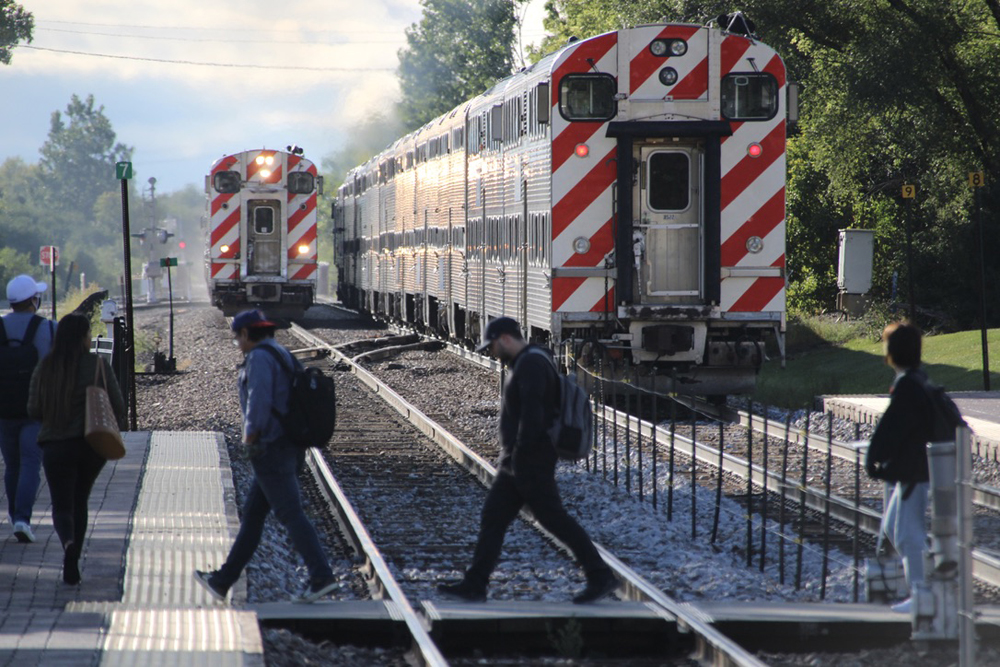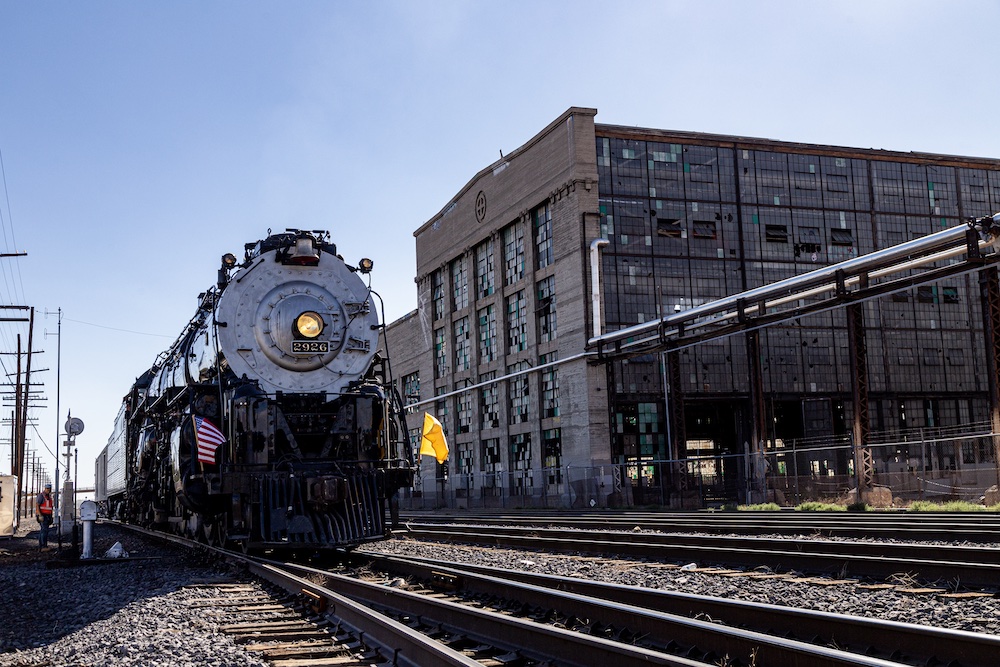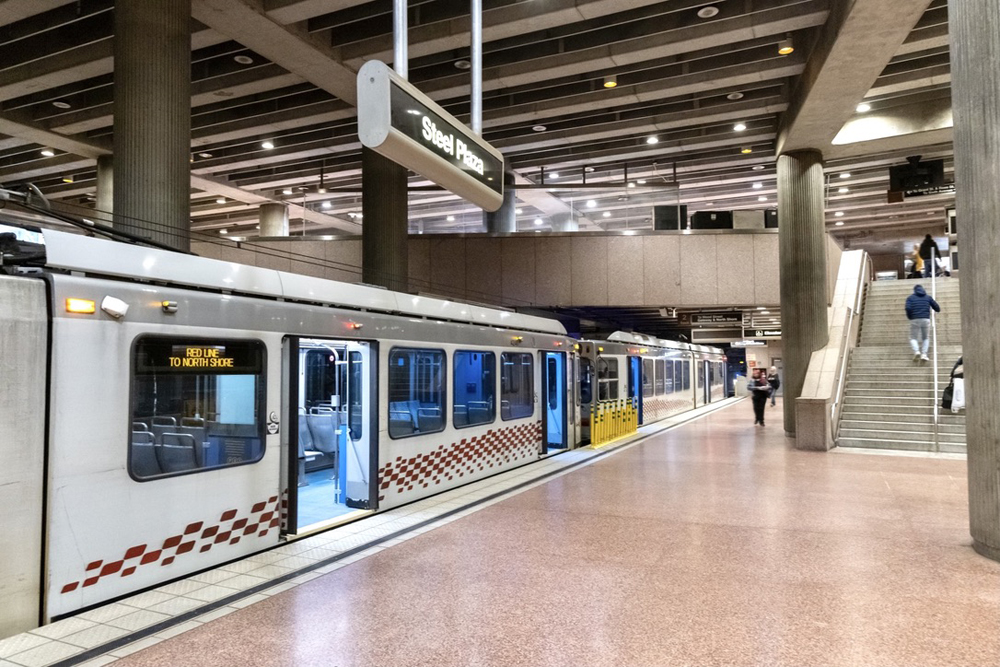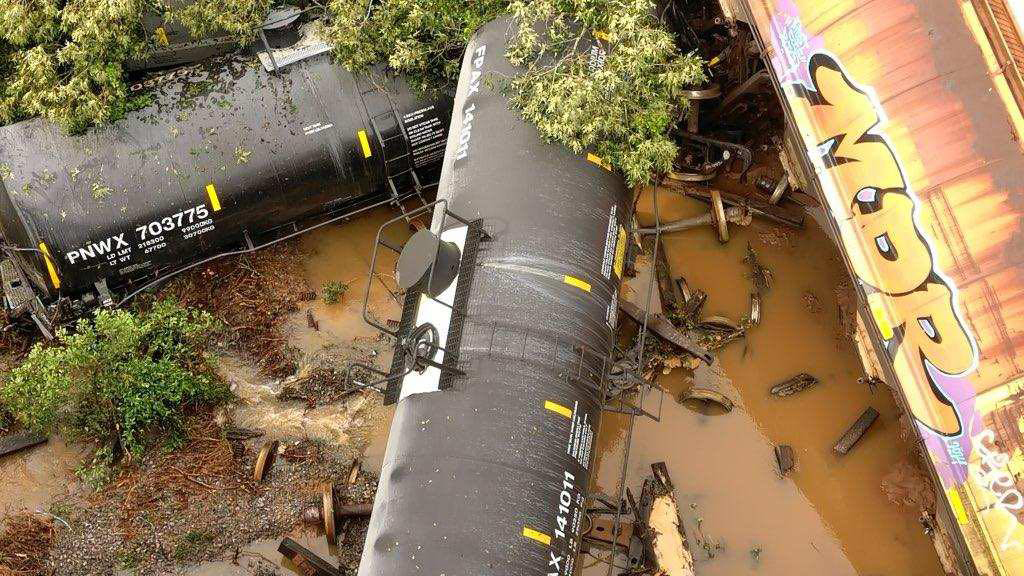
WASHINGTON — Commuter rail operator Metra and a group of Chicago suburbs received few of the conditions they had sought when the Canadian Pacific-Kansas City Southern merger was approved on Wednesday.
But that doesn’t mean their concerns couldn’t be addressed later, Surface Transportation Board Chairman Martin J. Oberman said during a Wednesday press conference, thanks to the board’s unprecedented seven years of oversight of merger impacts.
Oberman said that the board found that data didn’t support most of Metra’s requests, and suggested that many of those in the communities that formed the Coalition to Stop CPKC had been misinformed about the merger’s impact.
Among Metra’s requests was to regain dispatching control of its Milwaukee-West line, which it owns but is dispatched by CP, a remnant of an agreement stemming from the bankruptcy of the Milwaukee Road.
“We are not going order transfer of those dispatching rights,” Oberman said, “because we do not think the data requires it or supports it, and it would cause us, in effect, to break a contract.”
However, he said, the extensive data reporting requirements outlined in the merger decision will allow the board to track the interaction between Metra and CPKC, “and if it turns out there are meaningful problems for Metra, that possibility, as well as the other conditions that were asked for, remain on the table.”
The decision requires CPKC to report 15 forms of operating metrics for the Milwaukee-West line, as well as five sets of metrics for its Marquette Subdivision in Iowa and Minnesota — the latter a reflection of concerns that operating problems on the Marquette Sub could lead trains to be rerouted onto the Metra line. (The metrics are spelled out on pages 119-120 of the merger decision, as well as in its Appendix B).
The CPKC merger application also offered a formula for dispute resolution between the freight railroad and Metra; the STB decision strengthens that formula, while building in the right to extend it for three years should the recovery mechanisms not resolve any delay issues.
Metra, in a statement this afternoon, said it “remains concerned about the potential impact of this merger on our operations. We will count on the merged railroad’s commitments and the STB’s oversight to make sure we can operate safely and reliably and continue to provide service that meets the needs of the residents of the Chicago area.”
Communities not mollified by long-term oversight
Oberman said he sympathized with the “real fears” of the coalition communities along the Milwaukee-West line, and their first responders, about safety issues arising from blocked crossings that could come from more and longer trains.
“But while the fears are legitimate,” he said, “I think some people had been given information that was just not accurate, and it understandably caused their fears to be increased. … In the communities we’re talking about, where those concerns were voiced, the average train lengths will increase by about 10 cars,” he said. “That is just a few seconds if the train is going at the appropriate speed.”
Officials in those communities may not have helped their case by the amount of mitigation they sought.
“The combined mayors of the western suburbs asked us to impose about $9 billion in expenditure by CP to build overpasses at virtually every crossing,” he said. [See “Chicago suburbs seek $9.5 billion …,” Trains News Wire, March 1, 2022]. But that is simply not the real world and it isn’t going to happen. And it isn’t warranted. … The data show that it isn’t necessary.”
Again, though, he emphasized that the board’s continuing oversight will allow it to call for further mitigation if data shows that there is, in fact, an issue.
“We will be there,” he said, “and I’m comfortable assuring all of those first responders that if they can demonstrate the problems to us, we will do everything under the sun to solve the problem.”
That did not mollify coalition members, who held their own press conference — available on the coalition’s Facebook page — shortly after Oberman’s. Bensenville Village President Frank DeSimone said the STB decision “ignored our concerns for safety; it ignored our concerns about quality of life; and it ignored our concerns about the negative consequences for economic development in our communities.” Hanover Park Mayor Rodney Craig called the STB ruling “disgusting … We expected better.” And the coalition’s chair, Carie Anne Ergo, said the STB’s reliance on the railroad’s statistics was “the fox guarding the henhouse.”














You can tell Marty Oberman is from Chicago and used to be on the Metra board. He knows what makes things work.
If this was a new line construction, some of the NIMBY’S would have a point. However, The rail lines have been there for ever and everyone knew they were there when they moved into their residences. So bad so sad. IF you don’t like the rail lines near your homes MOVE! They reached for the stars in their ask for money and got nothing.
With EJ&E CN sent managers to meet with EVERY affected suburb and see what kind of “deals” would be provided. One of the “gifts” was the now famous Matteson Railfan Park located on top of the Matteson loop connection. The stupid morons in Elgin and Hanover Park thought they could get everything and instead got virtually nothing. Talk about “The Bridge too Far.” I wonder how much of that strategy was due to Sen. Do-Nothing-Dick and his lackey Little Tammy?
James – 10 thumbs up!
“But while the fears are legitimate,” Bullsh-t. This was a shameless grab for money. I am glad they all got nothing as well
These NIMBYs need only to go to nearby suburbs — Elmhurst, Glenview, Berwyn, Western Springs, Downers Grove, LaGrange, Lake Forest —- and see that heavy freight traffic and great suburban living are fully compatible.
Nimby’s all. Glad they didn’t get their whiney way.